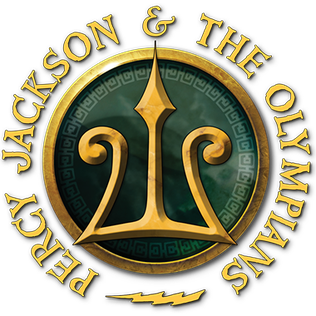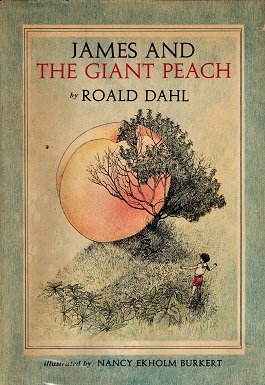Thomas Stearns Eliot
Explore the timeline of Thomas Stearns Eliot, an influential poet, essayist, publisher, playwriter, and literary critic of the 20th century. From his birth in St. Louis in 1888, through his studies at Harvard, the publication of landmark works like 'The Waste Land' and 'The Love Song of J. Alfred Prufrock', to his achievements and accolades, including the Nobel Prize in Literature in 1948, and his lasting impact on modern literature until his death in 1965.
Birth of T. S. Eliot
Thomas Stearns Eliot, one of the 20th century's major poets, was born on September 26, 1888, in St. Louis, Missouri, USA. Eliot was an American-born British poet, essayist, publisher, playwright, and critic. His early works, especially 'The Love Song of J. Alfred Prufrock' and 'The Waste Land', established him as a seminal figure in modernist literature. He later became a British citizen and profoundly influenced both American and English literature. Eliot was a central figure in the modernist movement, and his works explored themes of alienation, fragmentation, and spirituality.
Publication of 'The Love Song of J. Alfred Prufrock'
In June 1915, 'The Love Song of J. Alfred Prufrock', one of T. S. Eliot's first and most famous works, was published in 'Poetry: A Magazine of Verse'. This poem is known for its innovative style and the use of 'stream of consciousness' narrative. It explores themes of indecision and internal conflict and is considered a significant modernist piece of literature. The work helped establish Eliot as a prominent voice in modern poetry and is still widely studied in literature courses today as an example of early modernist poetics.
Establishment of 'The Criterion' Journal
In 1922, T. S. Eliot founded 'The Criterion', a literary magazine that played a crucial role in the modernist movement of the early 20th century. Eliot served as its editor until its final issue in 1939. The journal published a wide range of important works, including many of Eliot’s own essays and poems, and excerpts of 'Ulysses' by James Joyce. 'The Criterion' provided a platform for emerging and established voices in English literature, significantly shaping contemporary literary discourse. Eliot’s work as an editor further cemented his influence in the literary world.
Publication of 'The Waste Land'
'The Waste Land', published in 1922, is a landmark in 20th-century literature by T. S. Eliot. This poem has been described as one of the most important texts of modernist poetry. It reflects the fragmented and war-torn state of post-World War I society, embracing themes of despair and disillusionment. The poem's innovative use of language, symbolism, and its vast range of cultural references challenged conventional poetry styles. Its publication was pivotal, marking Eliot’s position as a central figure in modernist literature.
T. S. Eliot Becomes a British Citizen
On June 29, 1927, T. S. Eliot became a British citizen. Born in the United States, Eliot moved to England in 1914 and spent the remainder of his life there. His decision to become a citizen of the United Kingdom was accompanied by a conversion to Anglicanism, which profoundly influenced his later works. Eliot's citizenship marked the deepening of his ties to England, and his writing increasingly reflected his religious and cultural beliefs. This change of nationality and faith had a significant impact on his identity both as a private individual and as a poet.
Publication of 'Ash Wednesday'
Published in 1930, 'Ash Wednesday' is one of T. S. Eliot’s first major poems written after his conversion to Christianity. This work marked a significant shift in Eliot's thematic focus, exploring themes of spirituality, conversion, and salvation. The poem represents a turning point in Eliot’s life and work, reflecting his personal struggles and his newfound religious faith. 'Ash Wednesday' is considered a major work in Eliot’s canon, showcasing his mastery of language and his ability to weave complex themes into poetic form.
Premiere of Eliot's Play 'Murder in the Cathedral'
In June 1935, T. S. Eliot's play 'Murder in the Cathedral' premiered at Canterbury Cathedral. This work is a dramatization of the murder of Archbishop Thomas Becket in Canterbury Cathedral in 1170. It marked a shift in Eliot's career towards verse drama, combining his interest in spirituality and politics with theatrical form. The play was notable for its exploration of the conflicts between church and state, and the moral questions surrounding martyrdom and faith. 'Murder in the Cathedral' is considered one of Eliot's most successful endeavors in blending poetry and drama.
Publication of 'Old Possum's Book of Practical Cats'
In 1939, T. S. Eliot published 'Old Possum's Book of Practical Cats', a collection of whimsical poems about cats. This marked a departure from his usual style of serious, densely layered modernist poetry. The poems were originally written for his godchildren and friends, reflecting Eliot's playful use of language and humor. This collection later inspired Andrew Lloyd Webber's musical 'Cats', bringing Eliot's work to a wholly new and expansive audience. 'Old Possum's Book of Practical Cats' remains one of the most popular adaptations of Eliot's work.
T. S. Eliot Awarded the Nobel Prize in Literature
On November 4, 1948, T. S. Eliot was awarded the Nobel Prize in Literature for his outstanding, pioneer contribution to present-day poetry. His works, including 'The Waste Land' and 'Four Quartets', were recognized for their innovative techniques, profound exploration of the modern human psyche, and spiritual and intellectual depth. Eliot’s receipt of Nobel Prize solidified his status as one of the primary architects of modernism in poetry. The award was a testament to his influence in shaping modern literature through his poetic mastery and critical analyses.
Death of T. S. Eliot
Thomas Stearns Eliot passed away on January 4, 1965, in London, England, at the age of 76. Eliot's death marked the end of an era for modernist literature. He left behind a legacy of groundbreaking poetry and literary criticism that continues to influence writers and scholars. Throughout his life, Eliot's work was distinguished by its intellectual rigor and exploration of themes such as tradition, impersonality, and spiritual transcendence. He remains a towering figure in the history of English literature, renowned for his contributions as a poet and critic.
Frequently asked questions about Thomas Stearns Eliot
Discover commonly asked questions regarding Thomas Stearns Eliot. If there are any questions we may have overlooked, please let us know.
When did T.S. Eliot pass away?
When did T.S. Eliot win the Nobel Prize in Literature?
When was T.S. Eliot born?
What are some of T.S. Eliot's most famous works?
Related timelines
More timelines connected to Thomas Stearns Eliot







